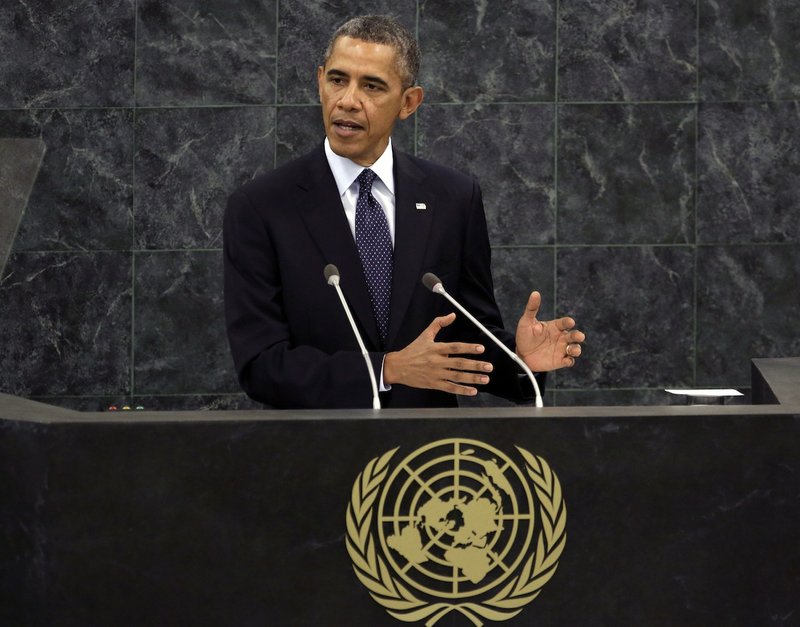WASHINGTON — The U.S. and partner nations began launching airstrikes against Islamic State group targets in Syria for the first time Monday night, expanding a military campaign against the militants with a mix of fighter jets, bombers and Tomahawk cruise missiles fired from ships in the region.
The strikes were part of the expanded military campaign that President Barack Obama's authorized nearly two weeks ago in order to disrupt and destroy the Islamic State militants, who have slaughtered thousands of people, beheaded Westerners, including two American journalists, and captured a large swath of territory stretching from within Syria to land across northern and western Iraq.
Because the military operation was ongoing, no details could be provided yet, said Rear Adm. John Kirby, the Pentagon's press secretary. He said the decision to strike was made earlier Monday by the military. He did not name the partner nations participating in the operation; however, U.S. officials have said the U.S. would not launch this mission alone and some Arab nations had been expected to participate.
Some of the airstrikes were against Islamic State group targets in Raqqa. Military officials have said the U.S. would target militants' command and control centers, re-supply facilities, training camps and other key logistical sites.
"We will be prepared to strike ISIL targets in Syria that degrade ISIL's capabilities," Army Gen. Martin Dempsey, chairman of the Joint Chiefs of Staff, told senators last week, using one of the acronyms for the Islamic State group. "This won't look like a shock-and-awe campaign, because that's simply not how ISIL is organized, but it will be a persistent and sustainable campaign.
Defense Secretary Chuck Hagel said that the plan "includes targeted actions against ISIL safe havens in Syria, including its command and control logistics capabilities and infrastructure." He said he and Dempsey approved the plan.
Read Tuesday's Arkansas Democrat-Gazette for full details.

